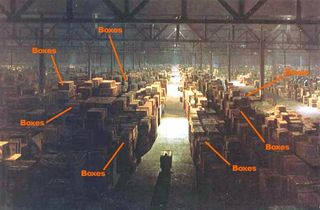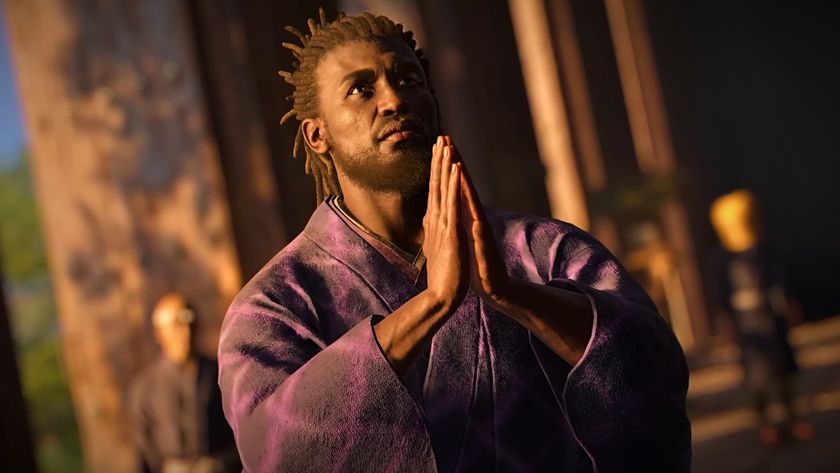The Top 7... Most significant boxes in video games from 2011
BECAUSE IT'S BOXING DAY. HO HO
2. Uncharted 3
While undoubtedly inspired by the boxes of the Indiana Jones films, Uncharted 3 developer Naughty Dog completely ripped up the video-game box rule book and then rewrote it again with really good handwriting. It reinvented the concept of the video-game box, subverting all preconceptions of its status as a static four-cornered container that is good for mostly just hiding behind and climbing over and pushing and/or pulling. This new box, which Naughty Dog possibly refers to as the 'cinematic box', is fully dynamic, immersive and intrinsic to the game's narrative.

Above: Naughty Dog took the idea of boxes from Raiders of the Lost Ark
As heart-throb Uncharted protagonist Nathan Drake, players experience set-pieces that feature the cinematic box as a cinematic device. And the effect is so effective there are actually moments when it feels like you're playing the game in a cinema. The screenshot below demonstrates one of the cinematic box's standout moments in Uncharted 3:

Above: Without boxes, this section would not be as cinematic
The entire cargo plane section of Uncharted 3 is gaming's first Citizen Kane of sections with boxes. At first, when utilised to dispatch an enemy, the box is a symbol of hope. But then, as the sliding boxes push Nathan out of the back of the plane, they represent despair. Finally, in this section with boxes' breath-taking crescendo, the box is an emblem of humanity's struggle against insurmountable odds as Drake scrambles over the boxes and back to the relative safety of the plane. Uncharted 3 blurs the boundaries of a box and entertainment. We can't wait to see what Naughty Dog does with boxes next.
1. Portal 2
Once there was a box. He was a good box. A quiet box, but a good and true friend. He followed his buddy far and wide, through trial, tribulation, trap and triumph. He suffered, he shielded, he provided and he protected. And then, suddenly and without good reason, he found himself dead and she found herself asleep. Though hers was a deep and dreamless sleep, only a few scant scrabblings above the box's own despicable fate.

He was lost, he was gone, we mourned, and we forgot.
Sign up to the 12DOVE Newsletter
Weekly digests, tales from the communities you love, and more
His companion slept. Time passed. Oh so much time passed. Civilisations rose, worlds fell. But the box? His absence was constant. So in time, the world grew never to have known him. His own importance and the many great things which he and his buddy had achieved came to sit in that awkward place between the things which have long-since changed the world and the things which have never happened at all.
Above: If there could be any more perfectly joyful ending, we would not want to see it. For we would weep ourselves inside out
And then, from the darkness, he returned into the light. And because we had so long-since lost his footnote from the great story of the world, his return came with all of the searing, sharp excitement of the new, yet too with all the warm, soft, weighty comfort of the old and familiar. And by that starkest of contrasts, we remembered his whole story anew. We remembered its end and we remembered his loss. Bitterness emphasised the sweetness. Sweetness made the bitter all the more sour. And from then on, we would feel his presence all the more strongly, and love him all the more deeply. And would never forget him again.

Assassin's Creed Shadows was originally envisioned without Yasuke, but Ubisoft wanted the full feudal fantasy: "We were sort of making a stealth tank, and it didn't quite work"

Assassin's Creed Shadows lead says dual protagonists are "a cool thing" the new action RPG "does better than what we've done in the past"










